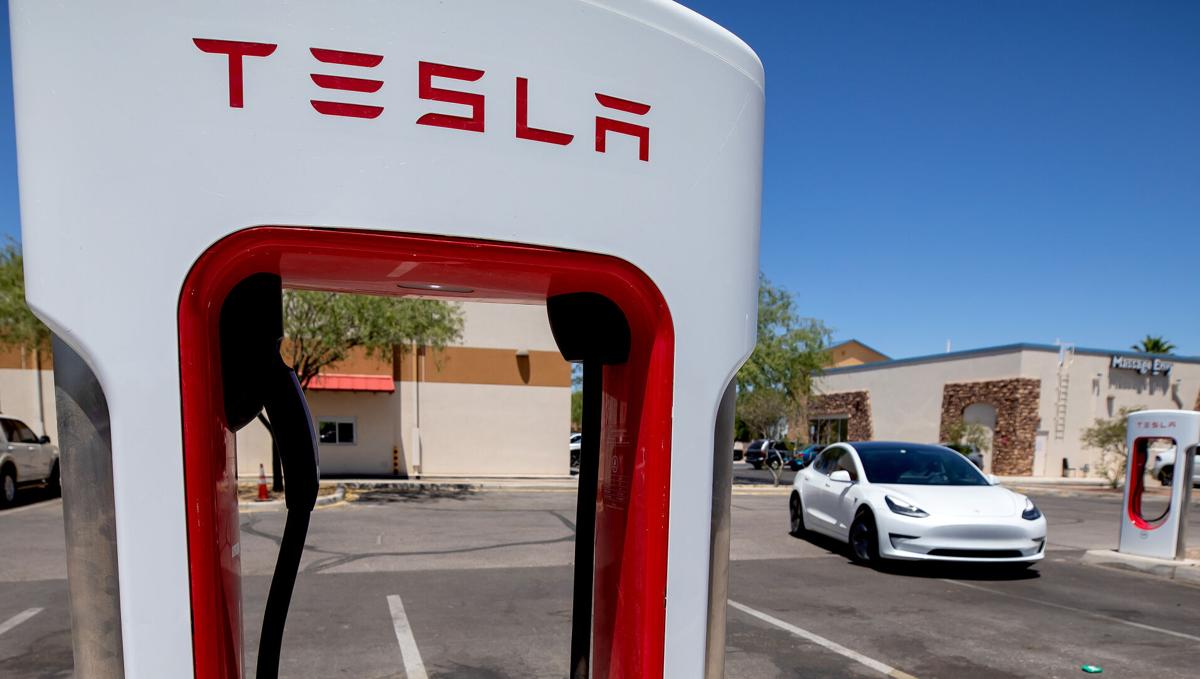PHOENIX — The free ride for owners of electric vehicles in Arizona could soon be coming to an end.
Members of the House Committee on Transportation and Technology have approved a plan to impose a new $135 annual registration fee on every vehicle that is incapable of operating on gasoline or diesel.
The biggest category is those plug-in electrics. And the most recent figures from the state Department of Transportation show there were 80,613 of these.
That would generate nearly $11 million a year for the fund that is used to maintain roads and build new ones.
It also would offset the fact that the owners of these vehicles do not pay the 18-cent-a-gallon tax on gasoline, the proceeds of which go into that same fund.
There is some mathematical basis for the registration figure chosen by Rep. David Cook for these alternate fuel vehicles.
Assuming a typical motorist drives about 15,000 miles a year in a vehicle that gets 20 miles to the gallon, that means they would buy about 750 gallons of gas. Factor in that 18-cent gas tax, and it comes out to $135.
While HB 2866 cleared the committee on a 5-4 vote, it still has some hurdles. And a key one is that being a new tax, it would require a two-thirds vote of both the House and Senate.
But the Globe Republican is promoting the levy as an alternative to a far less popular plan that would require the monitoring of driving by the owners of these alternate fuel vehicles and imposing a per-mile tax to compensate for the fact they don’t pay gasoline taxes. In fact, the same committee on a 6-5 vote approved sending a measure to the November ballot to prohibit not just the state but any other level of government from imposing any sort of fee or tax based on mileage.
And, for good measure, HCR 2018 bars any law that would limit the miles someone could travel.
That legislation is championed by Rep. Travis Grantham, who said he drives vehicles fueled by gasoline and diesel.
“Of the few freedoms we have left in this country, the freedom to travel is the one, or, if not, one of the last freedoms I hold most dear,’’ Grantham said in advancing his proposal.
“And I am terrified at the idea of tyrannical forces coming down and saying, ‘You can only drive this many miles now,’ ‘You can only drive on this day of the week now,’ ‘We know you drove this many miles last week, now you’re limited to this many miles next week,’ ‘’ he said.
And he said this is part of a larger — and darker — agenda.
“The forces that be that put these types of ideas forward want people on mass transit, they want people walking, they want people riding bicycles,’’ Grantham said.
“They don’t want you riding in a car,’’ he said. “Cars are our right. It’s a freedom issue.’’
Still, Grantham acknowledged there’s an issue of fairness.
“I actually believe there’s still a wear-and-tear issue on the roads,’’ he said.
“I believe we have to fund our roads,’’ Grantham continued. “I believe we have a responsibility to continuously upkeep our infrastructure.’’
That’s why he said he will back Cook’s plan for that $135 fee.
While the number of electric vehicles on the road is comparatively small — just a hair over 1% of the nearly 8 million vehicles registered — the trend is clear: Three years ago, there were fewer than 35,000 all-electric vehicles in Arizona.
All that goes to the question of whether the current model of funding roads with fuel taxes is sustainable.
The state collected $540 million in fuel taxes in 2023. That is just 3.3% more than what the state took in during 2020, far less than inflation in that period.
It’s not just the shift to alternate fuel vehicles.
The Environmental Protection Agency reports that the average vehicle in 2023 was getting 28 miles per gallon. That compares with 25.4 in 2020.
Yet despite more options in mass transit and programs to get people out of their cars, there is no indication people are using the roads less.
One way of at least partially addressing the issue would be to increase the gasoline tax, which has not been raised since 1991.
The most recent bid was a 2019 bid by then-Rep. Noel Campbell, R-Prescott. He argued that was was worth a dollar in 1991 was worth just 47 cents at that point.
That faltered amid opposition from both sides of the political aisle as well as a pronouncement by then-Gov. Doug Ducey that he would veto it. And that still wouldn’t address the issue of vehicles that don’t use gasoline.
Even current Gov. Katie Hobbs has said she wants legislators to enact new laws to ensure that drivers of electric cars pay their way. But so far, the governor has not introduced any plan of her own or backed any specific proposal.





